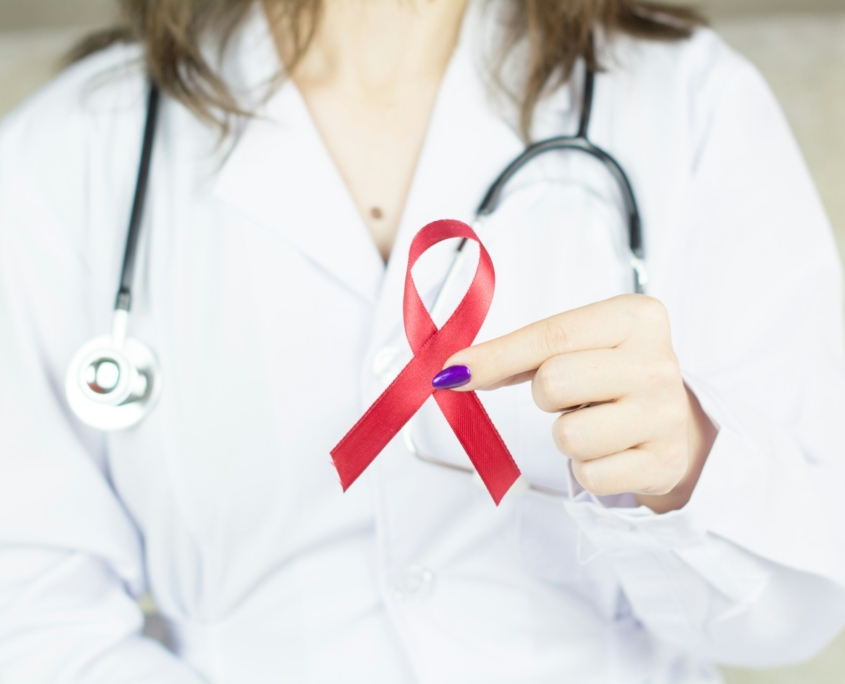Comoros HIV Prevention
 In Comoros, a small island nation, efforts to combat HIV through the Prevention of Mother-to-Child Transmission (PMTCT) program are yielding promising results. According to the National Health Service (NHS), human immunodeficiency virus (HIV) compromises the immune system, hindering the body’s ability to fight infections. The virus, transmissible through bodily fluids, can pass from mother to child during pregnancy, birth or breastfeeding. However, PMTCT programs are proving effective, with proper health care reducing transmission rates to under 1%.
In Comoros, a small island nation, efforts to combat HIV through the Prevention of Mother-to-Child Transmission (PMTCT) program are yielding promising results. According to the National Health Service (NHS), human immunodeficiency virus (HIV) compromises the immune system, hindering the body’s ability to fight infections. The virus, transmissible through bodily fluids, can pass from mother to child during pregnancy, birth or breastfeeding. However, PMTCT programs are proving effective, with proper health care reducing transmission rates to under 1%.
Challenges in PMTCT Implementation
HIV is deadly, killing 50% of infected children before their second birthday if they do not receive treatment. PMTCT is crucial, as it accounted for 90% of child HIV infections in 2018. Unfortunately, in lower-income countries, mother-and-child services and PMTCT programs often face staffing and resource shortages, making it challenging for countries and organizations to implement these programs on a large scale.
Global guidance, including WHO’s Strategic Direction 4, mandates that policies and programs ensure services are culturally appropriate and responsive to community needs, addressing stigma, discrimination and social and structural barriers. Institutions such as UNICEF are working toward eradicating AIDS by 2030, in partnership with the Global Alliance to End AIDS among children and adolescents and the UNAIDS Joint program. These organizations’ goals focus on widespread HIV testing and treatment to combat the epidemic.
Global Efforts and Local Success in Comoros
In Comoros, continued efforts from PMTCT programs have reduced HIV prevalence to just 0.03% among expectant mothers. The Ministry of Health implemented a national policy that mandates training health workers and raising awareness among pregnant women during prenatal consultations. This approach has yielded impressive results: no HIV-positive mothers have given birth to HIV-positive children and all HIV-positive pregnant women received ARV treatment by 2021.
Comoros’ PMTCT Achievements and Future Goals
The PMTCT program in Comoros has achieved remarkable success, partly due to international assistance. In 2020, UNICEF supplied health facilities with critical equipment and supplies, including reagents for HIV testing, essential for preventing mother-to-child transmission of HIV. This support plays a crucial role in the Ministry of Health’s strategy, focusing on testing and training.
While Comoros has made significant progress, its mission continues. The Health Ministry has launched an ambitious strategy for 2025 aimed at eradicating new HIV infections in infants born to HIV-positive mothers, ensuring that three-quarters of pregnant women know their HIV status and reducing new infections by 75% from 2020 levels.
Looking Ahead
Comoros is poised to continue its successful implementation of the PMTCT program, aiming to eliminate new HIV infections among newborns. With international support and effective local strategies, the nation expects to significantly reduce transmission rates. The Ministry of Health’s proactive measures in training and equipping health care providers could further strengthen the program’s effectiveness. By 2025, Comoros aims to have the majority of pregnant women aware of their HIV status, a critical step in prevention efforts. These concerted efforts are vital for sustaining progress and achieving the goal of eradicating AIDS in children and adolescents within the nation.
– Rachael Denton-Snape
Rachael is based in High Wycombe, UK and focuses on Good News and Global Health for The Borgen Project.
Photo: Unsplash
